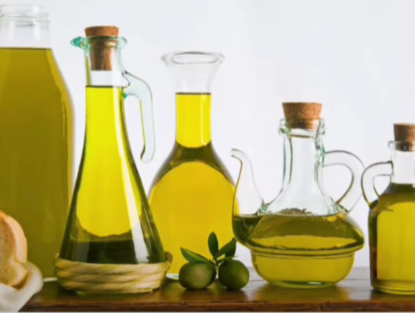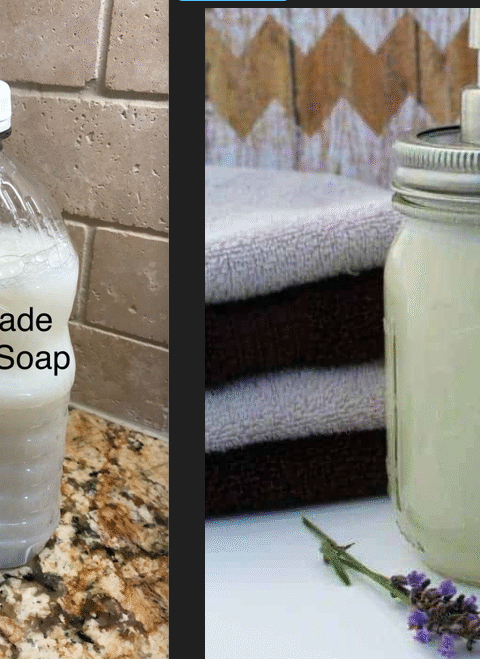The Truth About Cooking Oils: Choose Smarter Fats for Better Health
🍳 Not all cooking oils are created equal! While some oils nourish your body, others silently contribute to inflammation, metabolic issues, and chronic disease. This guide helps you make better choices for your kitchen — boosting flavor, performance, and long-term health. Let’s break down the best and worst cooking fats and uncover how to cook healthier every day.
🔥 Why Cooking Oil Quality Matters
Cooking oils are more than just fat — they’re biochemically active compounds that affect hormone levels, inflammation, cell repair, and even brain health. Choosing poor-quality oils can silently fuel chronic inflammation, while good fats support energy, absorption of nutrients, and better metabolic function. The key is understanding oil types, their fatty acid content, and how they behave under heat.
✅ Best Fats to Cook With
1. Butter
- 🥄 Natural source of fat-soluble vitamins A, D, E, and K2
- Contains short-chain fatty acids like butyrate — anti-inflammatory and gut-friendly
- Best for low to medium-heat cooking, baking, or sautéing
2. Ghee (Clarified Butter)
- 🧈 Lactose-free and casein-free — ideal for dairy-sensitive individuals
- High smoke point (~250°C / 485°F), excellent for frying
- Rich in conjugated linoleic acid (CLA) — supports fat metabolism
3. Tallow (Beef Fat)
- 🥩 Traditional fat used for centuries; stable under high heat
- High in saturated and monounsaturated fats — less prone to oxidation
- Excellent for roasting, frying, and sautéing
4. Coconut Oil
- 🥥 Rich in medium-chain triglycerides (MCTs) — quickly absorbed for energy
- Antimicrobial properties and stable under high heat
- Ideal for baking, pan-frying, and even smoothies
5. Extra Virgin Olive Oil
- 🌿 Rich in polyphenols and monounsaturated fats
- Anti-inflammatory, heart-healthy, and safe for low-medium heat
- Best for drizzling, dressings, sautéing, and roasting at moderate temperatures
❌ Fats to Avoid
1. Sunflower Oil
- 🌻 Often high in omega-6 fatty acids — excessive intake linked to chronic inflammation
- Prone to oxidation under heat, releasing free radicals
2. Canola Oil
- 🛢️ Highly processed, often refined using solvents like hexane
- Typically genetically modified and oxidizes quickly when heated
3. Grapeseed Oil
- 🍇 High in omega-6 fatty acids and often produced using chemical extraction
- Not stable under high heat — contributes to oxidative stress
4. Corn Oil
- 🌽 Common in processed foods, extremely high in omega-6 fats
- Linked to systemic inflammation, metabolic dysfunction
5. Plant-Based Butter Alternatives
- 🌱 Often made with hydrogenated oils or processed seed oils
- Contain trans fats and emulsifiers — harmful for heart health
📋 Oil Comparison Chart
| Oil/Fat | Smoke Point (°C) | Best Use | Health Impact |
|---|---|---|---|
| Ghee | 250°C | Frying, sautéing | ✅ High in stable fats, lactose-free |
| Butter | 150°C | Low-heat cooking, baking | ✅ Nutrient-rich, natural |
| Tallow | 200°C | Roasting, frying | ✅ Stable and traditional |
| Coconut Oil | 175°C | Baking, sautéing | ✅ MCTs for quick energy |
| Olive Oil (Extra Virgin) | 160°C | Dressings, sautéing | ✅ Anti-inflammatory, antioxidant |
| Canola Oil | 200°C | Often used in processed foods | ❌ Refined, oxidizes under heat |
| Sunflower Oil | 225°C | Frying (not recommended) | ❌ High in omega-6, inflammatory |
| Grapeseed Oil | 215°C | Supposed “healthy” alternative | ❌ Prone to oxidation |
| Corn Oil | 230°C | Common in fast food | ❌ Highly processed, inflammatory |
👨⚕️ Expert Insights
Dr. Leila Nour, Nutritional Biochemist: “The overconsumption of omega-6-rich seed oils is one of the biggest contributors to chronic inflammation today. Replacing them with stable, traditional fats like ghee or olive oil can significantly improve metabolic and cardiovascular health.”
Prof. Mark Benson, Harvard School of Public Health: “Cooking oils affect your long-term health more than most realize. Prioritize natural fats that have stood the test of time — ghee, tallow, olive oil — and avoid industrial seed oils at all costs.”
❓ Top 10 FAQs on Cooking Fats
- Can I cook with olive oil at high temperatures?
Use extra virgin olive oil for low to medium heat. For frying, use ghee or coconut oil instead. - What’s the best oil for frying?
Ghee, tallow, or refined coconut oil due to their high smoke points. - Is butter healthier than margarine?
Yes. Butter is a natural fat with beneficial nutrients, while margarine often contains trans fats and additives. - Is canola oil really that bad?
Yes. It’s highly refined and oxidizes easily, contributing to inflammation and metabolic disorders. - What about avocado oil?
Avocado oil is a good option — high in monounsaturated fats and stable at higher temperatures. - Are plant-based butters healthy?
Not usually. Most are made from processed seed oils and emulsifiers that harm your heart and gut health. - Can I reuse oil for frying?
Reusing oil promotes oxidation and the formation of harmful compounds. Avoid it. - Does the color of oil matter?
Sometimes. Extra virgin oils are usually darker due to antioxidants and polyphenols — a good sign. - Is coconut oil good for cholesterol?
It may raise HDL (good cholesterol) and support metabolism, though saturated fat content should be balanced. - How do I store cooking oils properly?
Keep oils in dark, cool places in sealed containers to prevent oxidation.
💡 Final Thoughts
Cooking with the right fats isn’t just about flavor — it’s a foundational pillar of long-term health. Swap out inflammatory seed oils for nourishing fats like butter, ghee, and olive oil. Your heart, brain, skin, and metabolism will thank you. 🥑🔥
Make the change today — your future self will feel the difference!






